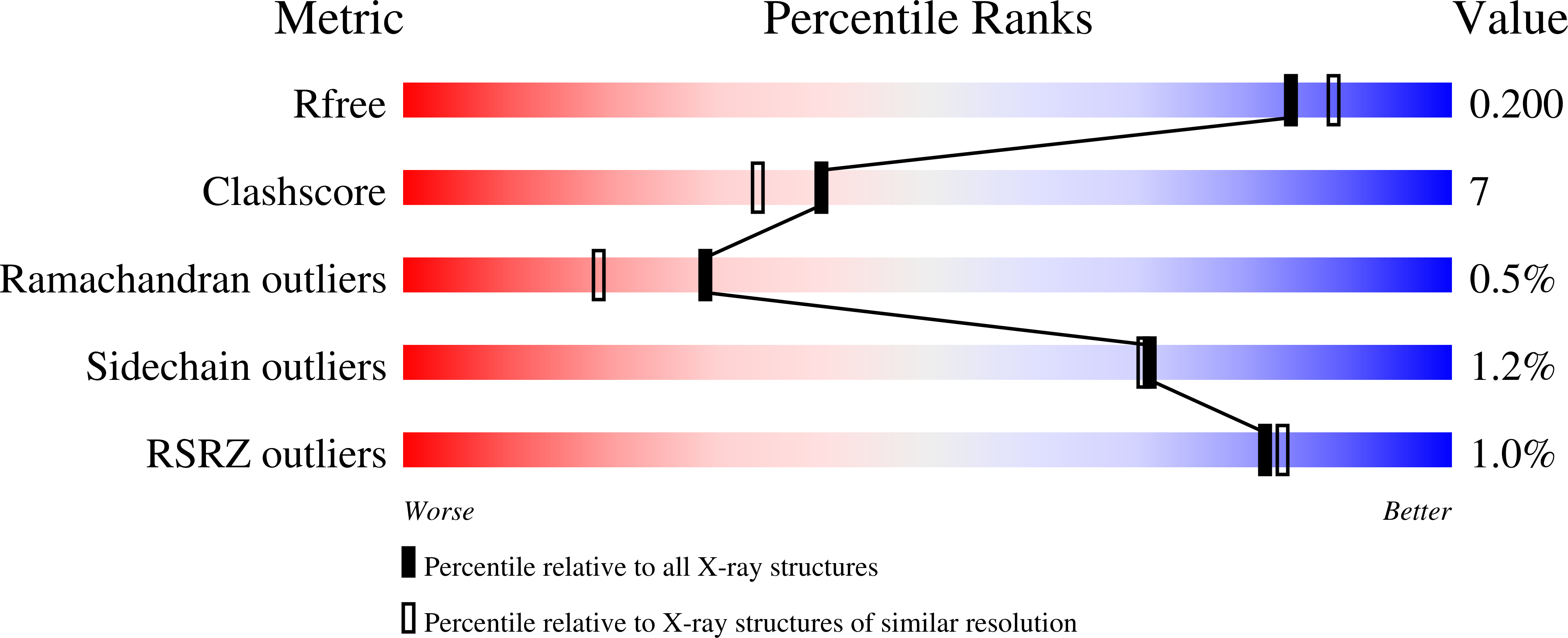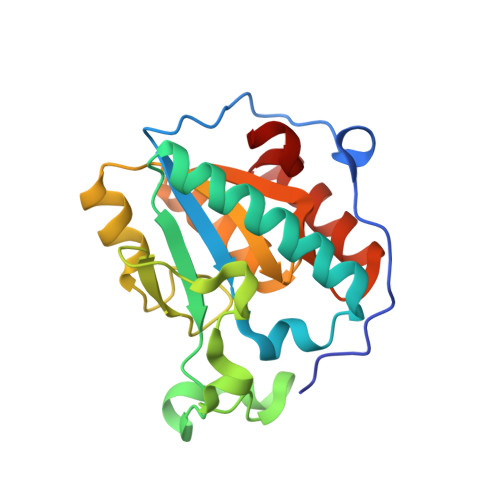Ligand Binding Induces an Ammonia Channel in 2-Amino-2-desoxyisochorismate (ADIC) Synthase PhzE.
Li, Q.A., Mavrodi, D.V., Thomashow, L.S., Roessle, M., Blankenfeldt, W.(2011) J Biological Chem 286: 18213-18221
- PubMed: 21454481
- DOI: https://doi.org/10.1074/jbc.M110.183418
- Primary Citation of Related Structures:
3R74, 3R75, 3R76, 3R77 - PubMed Abstract:
PhzE utilizes chorismate and glutamine to synthesize 2-amino-2-desoxyisochorismate (ADIC) in the first step of phenazine biosynthesis. The PhzE monomer contains both a chorismate-converting menaquinone, siderophore, tryptophan biosynthesis (MST) and a type 1 glutamine amidotransferase (GATase1) domain connected by a 45-residue linker. We present here the crystal structure of PhzE from Burkholderia lata 383 in a ligand-free open and ligand-bound closed conformation at 2.9 and 2.1 ? resolution, respectively. PhzE arranges in an intertwined dimer such that the GATase1 domain of one chain provides NH(3) to the MST domain of the other. This quaternary structure was confirmed by small angle x-ray scattering. Binding of chorismic acid, which was found converted to benzoate and pyruvate in the MST active centers of the closed form, leads to structural rearrangements that establish an ammonia transport channel approximately 25 ? in length within each of the two MST/GATase1 functional units of the dimer. The assignment of PhzE as an ADIC synthase was confirmed by mass spectrometric analysis of the product, which was also visualized at 1.9 ? resolution by trapping in crystals of an inactive mutant of PhzD, an isochorismatase that catalyzes the subsequent step in phenazine biosynthesis. Unlike in some of the related anthranilate synthases, no allosteric inhibition was observed in PhzE. This can be attributed to a tryptophan residue of the protein blocking the potential regulatory site. Additional electron density in the GATase1 active center was identified as zinc, and it was demonstrated that Zn(2+), Mn(2+), and Ni(2+) reduce the activity of PhzE.
Organizational Affiliation:
Department of Physical Biochemistry, Max Planck Institute of Molecular Physiology, Otto-Hahn-Strasse 11, 44227 Dortmund, Germany.


















